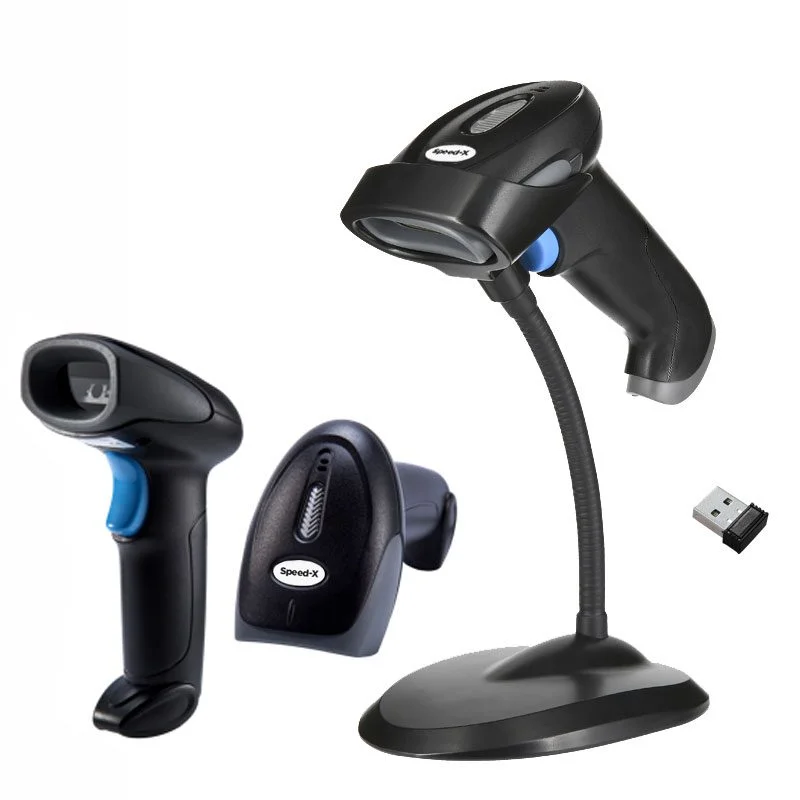How Barcode Scanners Improve Efficiency in Retail and Warehouse Operations

The Role of Barcode Scanners in Modern Business
In today’s fast-paced retail and warehouse environments, efficiency is not just a goal but a necessity. A barcode scanner has become one of the most indispensable tools for businesses looking to optimize operations, streamline processes, and reduce human error. From inventory tracking to faster checkout systems, barcode scanners have transformed the way data is collected and processed. Retailers and warehouse managers now rely on this technology to keep operations running smoothly while ensuring accuracy and productivity.
Enhancing Speed in Retail Operations
Speed is a critical factor in customer satisfaction within the retail industry. Shoppers expect quick checkouts, and retailers depend on efficient systems to serve more customers in less time. A barcode scanner makes this possible by instantly reading product information and transmitting it to the point-of-sale system. Instead of manually entering product codes or prices, cashiers can process items with a simple scan. This not only reduces waiting time but also allows staff to focus on customer service rather than administrative tasks. In addition, promotions, discounts, and loyalty points are easily applied through barcode data, ensuring a seamless shopping experience.
Reducing Errors in Data Entry
One of the biggest challenges in both retail and warehouse management is human error. Manual entry of product details or stock numbers is prone to mistakes, which can lead to incorrect pricing, inventory mismanagement, and financial losses. By integrating a barcode scanner, businesses significantly cut down on these errors. Every scan provides precise and reliable information, ensuring that pricing, stock levels, and customer billing remain accurate. For warehouses, this accuracy means shipments are correctly labeled, reducing the chances of delivering the wrong products to customers.
Streamlining Inventory Management
Inventory management can be one of the most time-consuming aspects of running a business. Knowing how much stock is available, which products need replenishment, and identifying slow-moving items are crucial to profitability. A barcode scanner simplifies this process by automatically updating inventory records in real time. Employees can scan products during stock counts, making the process faster and more reliable than manual counting. For retail stores, this means fewer stockouts and better forecasting of customer demand. For warehouses, it ensures accurate tracking of goods across multiple locations, improving order fulfillment rates.
Improving Warehouse Productivity
In warehouses, efficiency is all about speed, accuracy, and coordination. A barcode scanner supports workers in picking, packing, and shipping processes by ensuring that the right products are selected and dispatched. With a simple scan, workers can verify product details and update inventory records instantly. This automation reduces the time spent on paperwork and manual verification, enabling staff to handle more orders in less time. Additionally, barcode scanning minimizes the risk of sending incorrect shipments, which saves costs and strengthens customer satisfaction.
Integration with POS and ERP Systems
The effectiveness of a barcode scanner goes beyond basic scanning. Modern scanners integrate seamlessly with point-of-sale (POS) systems in retail and enterprise resource planning (ERP) systems in warehouses. This integration ensures that sales data, stock levels, and customer insights are updated automatically across platforms. Retailers benefit from real-time sales analytics, helping them understand buying trends and adjust marketing strategies. Warehouses gain better visibility into supply chains, making it easier to track shipments, monitor inventory levels, and improve logistics planning.
Enhancing Customer Experience in Retail
For retailers, efficiency is not just about operational speed but also about enhancing the customer journey. A barcode scanner plays a crucial role in ensuring customers enjoy a smooth checkout process with minimal delays. Scanners also support features such as self-checkout counters, which allow customers to scan and pay for items themselves, reducing queues and improving convenience. Furthermore, barcode scanning systems can be linked to customer loyalty programs, enabling automatic tracking of purchases and rewards. This strengthens customer engagement and builds long-term loyalty.
Supporting Warehouse Safety and Compliance
In warehouse environments, safety and compliance are key concerns. A barcode scanner contributes to these areas by ensuring accurate labeling and tracking of products, especially in industries dealing with hazardous materials or pharmaceuticals. Scanning ensures that products are stored and shipped according to regulations, reducing compliance risks. It also helps maintain traceability, which is essential in the event of recalls or audits. By minimizing manual handling of paperwork, barcode scanning also reduces workplace stress and allows workers to focus more on safe handling practices.
Cost Savings Through Automation
One of the most significant benefits of implementing barcode scanners in retail and warehouse operations is cost reduction. Manual processes require more labor, take more time, and increase the likelihood of costly errors. A barcode scanner, on the other hand, automates repetitive tasks, cutting down on operational expenses. Fewer mistakes mean fewer returns and less wasted inventory. Moreover, faster processes mean businesses can achieve higher throughput with the same number of staff, reducing labor costs in the long run.
Scalability and Flexibility for Businesses
As businesses grow, their operational demands increase. Barcode scanners provide the scalability needed to manage larger volumes of products and transactions. Whether expanding into new retail outlets or handling a growing warehouse inventory, a barcode scanner ensures that operations can scale smoothly without requiring extensive manual adjustments. Advanced barcode scanners can also read damaged or poorly printed labels, work wirelessly, and integrate with mobile devices, offering flexibility in diverse working environments.
Future of Barcode Scanning Technology
Barcode scanning technology continues to evolve with advancements in mobility, cloud integration, and artificial intelligence. Modern scanners now offer wireless capabilities, making them more convenient for warehouse workers who need to move around large facilities. Some systems integrate with mobile apps, allowing managers to access real-time inventory and sales data from anywhere. In addition, 2D barcode scanners can read QR codes, which are increasingly used in marketing campaigns, loyalty programs, and product authentication. These advancements ensure that barcode scanning remains an essential part of future retail and warehouse operations.
Conclusion
A barcode scanner is more than just a tool for reading product codes—it is a powerful system that enhances accuracy, saves time, reduces costs, and improves customer experiences. In retail, it ensures fast checkouts, accurate pricing, and better customer engagement. In warehouses, it streamlines inventory management, supports order fulfillment, and minimizes costly errors. By integrating with POS and ERP systems, barcode scanners provide real-time data that drives informed decision-making. As technology continues to advance, barcode scanners will play an even greater role in helping businesses achieve efficiency, scalability, and long-term success in both retail and warehouse operations.






